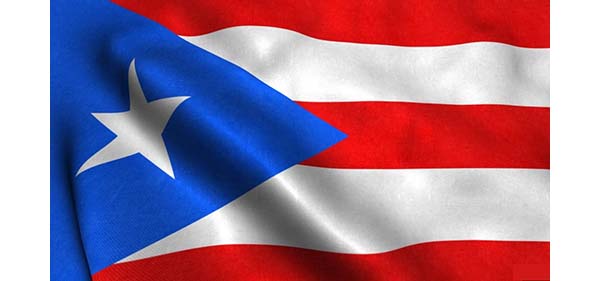Graciás Puerto Rico Gobernadora Hon. Wanda Vázquez Garced and the Legislatura.
“Act to Prohibit and Prevent Workplace Harassment in Puerto Rico” (House Bill 306) was signed into law with the governor’s signature on Aug. 7, 2020. The primary purpose of the Act is to prohibit and prevent abusive conduct against employees in the workplace that affects worker performance, alters workplace peace, and threatens the dignity of employees.
Without doubt, this law is the closest to the WBI Healthy Workplace Bill that has been introduced in 30 other U.S. States. The similarities and differences are shown below.
Ways 306 matches the HWB.
Definition of “workplace harassment”: malicious, unwanted, repetitive and abusive; arbitrary, unreasonable and/or capricious; verbal, written and/or physical; [performed] repeatedly by the employer, his agents, supervisors or employees, oblivious to the legitimate interests of the employer’s company, are unwelcome, ([violate the employee’s] protected constitutional rights — not this section). . . . creat[ing] an intimidating, humiliating, hostile or offensive work environment, not suitable for the reasonable person to perform their duties or tasks in a normal manner.
Employers will be held liable for the actions of their supervisors or other employees for conduct that is considered workplace harassment, if they knew of the harassment taking place and did nothing about it. (This is called employer vicarious liability.)
If the employer can establish that it took immediate and appropriate action to remedy and stop the workplace harassment, then the employer will not be held liable. (That is, employers can escape vicarious liability if they act appropriately.)
The law applies both to private and public sector employers.
The law also recognizes that opposing, denouncing, or participating in investigations related to workplace bullying will be considered protected activity under the Puerto Rico Anti-Retaliation statute, Act 115-1991. (The HWB also has an extensive anti-retaliation provision.)
Employer immunity for workplace injuries will not apply when it is determined that the condition suffered by the employee was prompted by (caused by?) a pattern of workplace harassment. Presumably, either a court or the State Insurance Fund determine causality. However, once that determination is made, the State Insurance Fund will have a cause of action against an employer to recover expenses incurred in providing treatment to the employee. (This is the equivalent of the HWB requirement that abusive conduct (or workplace harassment as named in this law) must lead to demonstrable harm in order to file a cause of action.)
Ways 306 differs from the HWB
The Act provides a non-exhaustive list of conduct that can be considered workplace harassment, such as: injurious, defamatory or damaging expressions about the person, with the use of profanity; hostile and humiliating comments about an individual’s professional incompetence in the presence of co-workers; public comments or ridicule directed at the employee about physical appearance or dress; among other examples. (HWB has no such list of illustrative examples.)
The totality of the circumstances must be considered in order to define the harassment. (This guidance suggests that a systemic approach be taken.)
The Act requires that employers adopt and implement internal rules and policies to eliminate or reduce the occurrence of workplace harassment, establish the procedure to investigate claims of workplace harassment, and impose sanctions against those who violate these policies. (This policy requirement is perhaps the strongest aspect of the new law.)
After the Puerto Rico Department of Labor issues uniform guidance as to the requirements employers need to include in their policies, employers will have 180 days to implement these requirements. Once uniform guidance is issued within 6 months or by Feb. 3, 2021, employers should review their current policies and revise them accordingly to ensure compliance with the Department’s requirements. (Involvement of government agencies is not part of the HWB because it incurs additional government costs.)
In terms of procedure an employee will have to follow to complain, the employee first must exhaust the employer’s internal complaint mechanism. If this is unsuccessful, then the employee may next turn to the Bureau of Alternate Dispute Resolution of the Judicial Branch. Finally, if mediation is unsuccessful or the mediator does not recommend it, then and only then may the employee take judicial action in the Court of First Instance. (HWB allows filing a civil case in court without requisite mediation. Mediation is frowned upon by all bullying researchers and practitioners in the U.S.)
Even though the Puerto Rico Unjust Dismissal statute, Act 80-1976, recognizes a cause of action for constructive discharge when an employee is subject to arbitrary, unreasonable, and capricious actions of the employer that cause a hostile work environment, employees do not have to resign to be covered under the new law.


